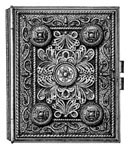
The Catholic University of Louvain in Belgium (Part I)
FROM GREATNESS TO DECADENCE
Belgium is a small country whose geographical location led to her involvement in many European wars. Her climate is mild; her rich soil, rightly considered a prized possession, was fought over for centuries. She has access to the North Sea, and is the cradle of great Catholic culture: Bruges is one of the architectural gems of the world; Ghent (the birthplace of King Charles V) has magnificent buildings; Brussels’s Grand Place is known the world over. Her painters are among the greatest. The Belgians were mentioned by Caesar in his Commentaries on the Gallic War. He praises them as the strongest of the various tribes he had conquered: Horum omnium fortissimi sunt Belgae.
He who knows the history of Belgium knows much about the history of Europe. Belgium belonged to the Dukes of Burgundy, and then through marriage, she came into the hands of the Habsburgs, first to its Spanish branch under Charles V, then later to the Austrian branch. The French Revolution conquered Belgian territory, and most of the Napoleonic wars were waged to keep the French flag flying over her. This was unacceptable to the British. They achieved their goal at Waterloo (about 14 miles south of Brussels), when Napoleon was finally defeated in 1815. The Congress of Vienna then decided that Belgium should be united to the Netherlands. This turned out to be a very unhappy marriage for the Belgians (the Dutch were Protestants and occupied all the key positions in the government), and the Belgians revolted 15 years later, and became independent in 1830. The country is now a constitutional monarchy.
The Catholic University of Louvain (Leuven in Flemish, a Dutch dialect) is one of the glories of Belgium. It was founded in 1425 at the request of Jean IV of Brabant by Pope Martin V. From that time on the University acquired an international reputation for its scholarship, the quality of its faculty, and its orthodoxy. Indeed, it was the Catholic University par excellence.
Its fidelity to the teaching of the Holy Catholic Church kindled Martin Luther’s ire, who called the theologians of Louvain “coarse donkeys, cursed sows, bellies of blasphemers, epicurean swine, heretics and idolators, putrid puddles, the cursed broth of Hell” (quoted in Jacques Maritain’s Three Reformers, p. 44). Apart from his Teutonic vulgarity, the Reformer did not realize that he was in fact paying a compliment to a university whose pride was to be faithful to the teaching of Holy Church.
The University’s reputation continued through the centuries. Particularly talented young men studying for the priesthood were sent to Louvain. The late Bishop Fulton Sheen was one of its most brilliant students.
You May Also Enjoy
The seminary's Vice Rector for Recruitment is being investigated for - you guessed it - buggering teenage boys.
It took a few years, but the Vatican has ruled that the former vocations director for the American College of Louvain is a homosexual child abuser.
The American College Louvain tries to justfy its teeny-tininess.

